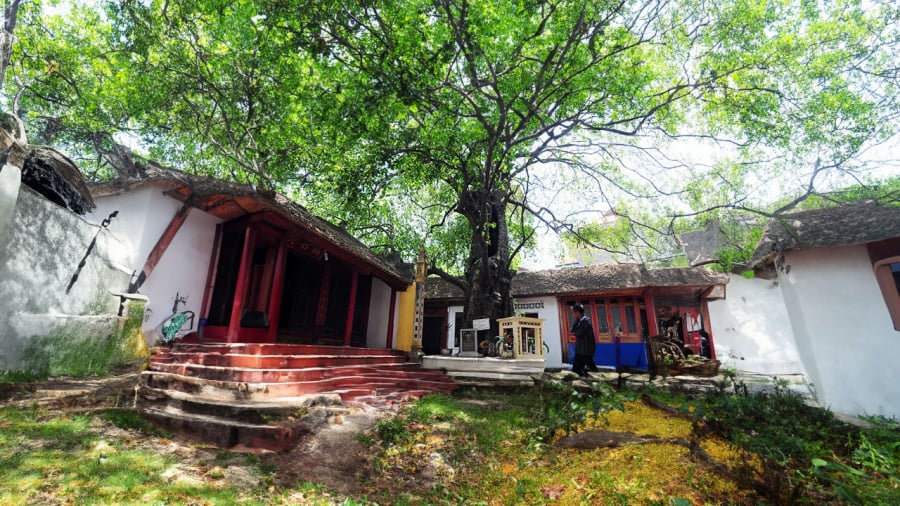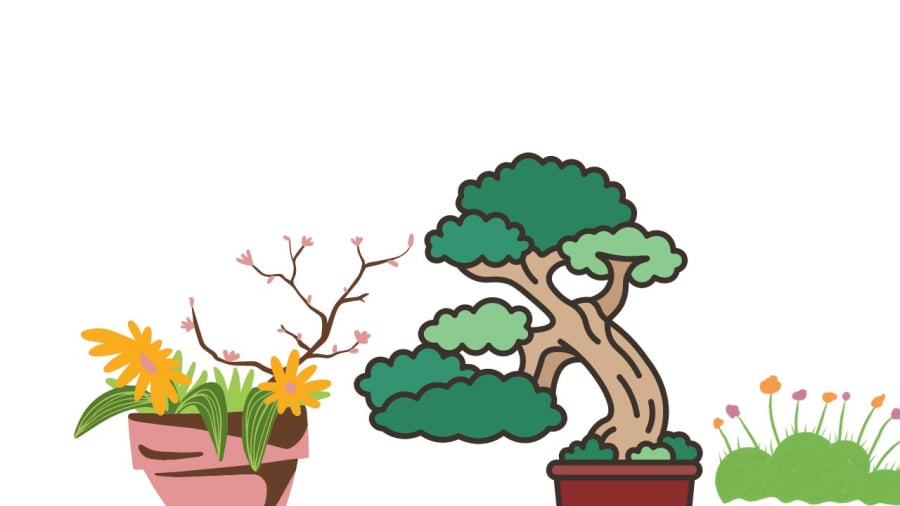Sacred Trees in Temple Compounds
Ancient cultures believed that trees growing within temple compounds over time gained a spiritual essence, possibly housing spirits and ghosts. Thus, these grand old trees were considered sacred and remained untouched, as tampering with them was thought to bring illness, bad luck, and financial hardship.
Superstition held that these ancient trees were so sacred that even when renovating nearby structures, efforts were made to avoid harming them. Cutting down these trees was thought to anger the spirits, inviting misfortune.
In the past, cutting these trees was a taboo act. However, if it was absolutely necessary, rituals were performed to ask for permission or to relocate the tree respectfully.

Trees in Temple Compounds: Do Not Cut Without Permission
Large Roadside Trees
Large trees alongside roads are believed to be habitats for wandering souls and ghosts, especially those adorned with incense burners and fruit offerings. Cutting these trees is considered an act of destroying the “homes” of deities, ghosts, wandering souls, and various animals that have transformed into spirits. As these trees are thought to house spirits, cutting them down is believed to invite vengeful spirits into one’s life, bringing illness and misfortune. Many skeptics who participated in cutting down such trees are said to have suffered prolonged illnesses.

Ancestral Landscape Trees: Do Not Cut
Feng Shui Trees Passed Down by Ancestors
Ancestral homes often feature landscape trees passed down through generations. These trees are considered integral to the home’s feng shui, and cutting them is believed to disrupt the positive energy flow. Additionally, these trees symbolize familial bonds and traditions, so removing them is akin to severing family ties and erasing generational heritage. Thus, ancient cultures held these trees in high regard, understanding that altering the existing feng shui could bring about negative consequences.
This information is for reference and spiritual contemplation only



































